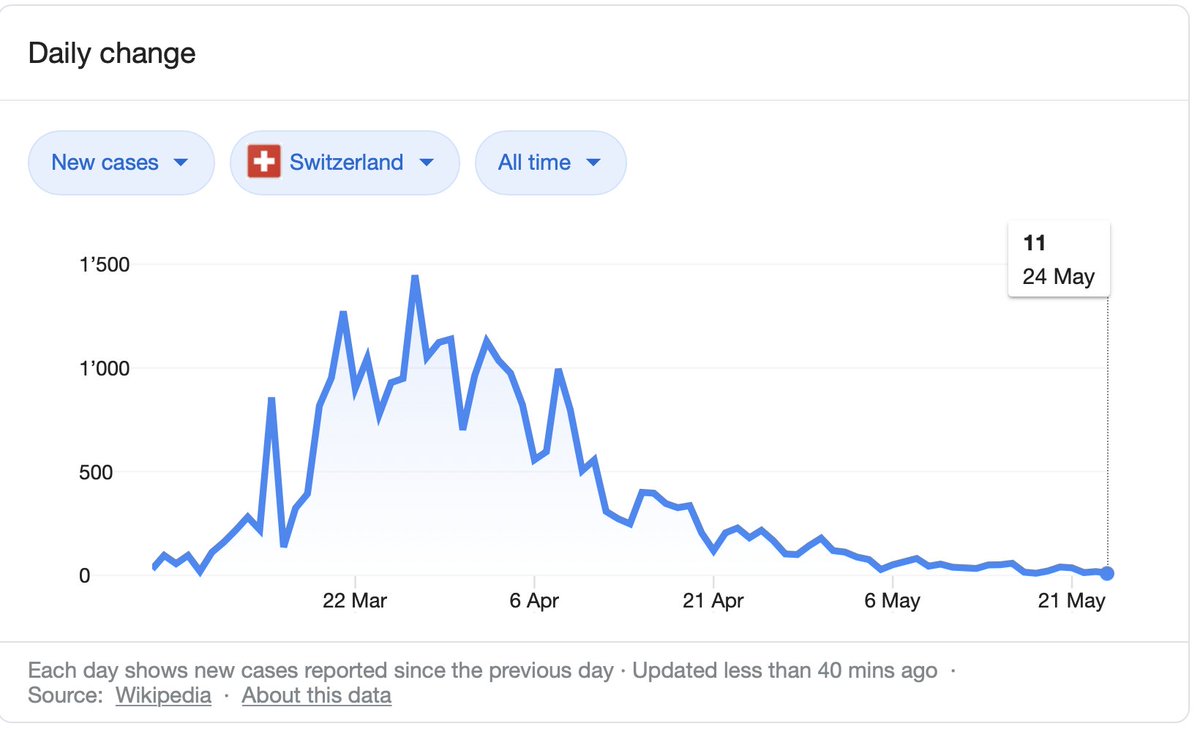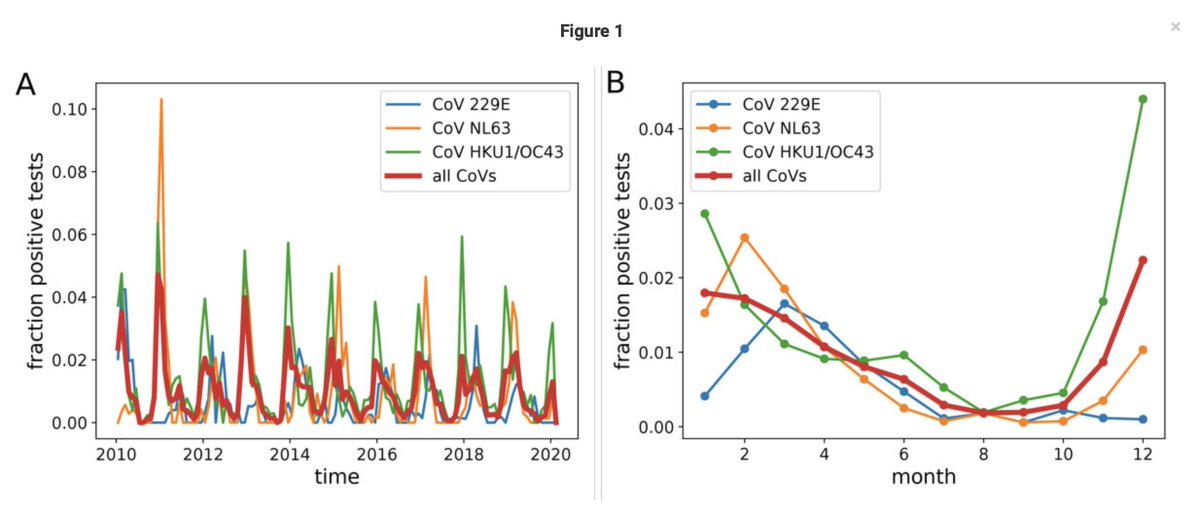The lack of a resurgence in #COVID19 cases following the easing of lockdowns in several countries is intriguing. I& #39;ll take Switzerland as an example. The lockdown ended on May 11 (schools/restaurants opened). Yet this did not translate in any increase in new cases so far.
(1/6)
(1/6)
There are some residual & #39;social distancing& #39; measures in place, which are not particularly strongly enforced and life is essentially back to the & #39;old normal. So why did the epidemic not resume? I can think of three non-mutually exclusive speculators reasons.
(2/6)
(2/6)
1. & #39;Residual social distancing& #39;: People may still be behaving in ways limiting viral transmission. This feels unlikely as the main explanation for Switzerland at least, where life is essentially back to normal and hardly anyone wears a mask.
(3/6)
(3/6)
2. Seasonality: The other endemic coronaviruses causing & #39;common colds& #39; are highly seasonal with a marked peak in winter. Thus, if #SARSCoV2 transmission were similarly seasonal the #COVID19 epidemic may be slowed by the current summer weather.
(4/6)
(4/6)
3. & #39;Cross-immunisation& #39;: A proportion of the population might have pre-existing immunity to #SARSCoV2 , potentially due to prior exposure to & #39;common cold& #39; coronaviruses. Under such a scenario, only a fraction of the population could be infected by the virus at this stage.
(5/6)
(5/6)
& #39;Residual social distancing& #39; and & #39;seasonality& #39; both likely contributed to the lack of resurgence of #COVID19 after the easing of lockdowns. & #39;Cross-immunisation& #39; is a & #39;wilder& #39; hypothesis but might explain some intriguing observations (e.g. no transmission between spouses).
(6/6)
(6/6)

 Read on Twitter
Read on Twitter



